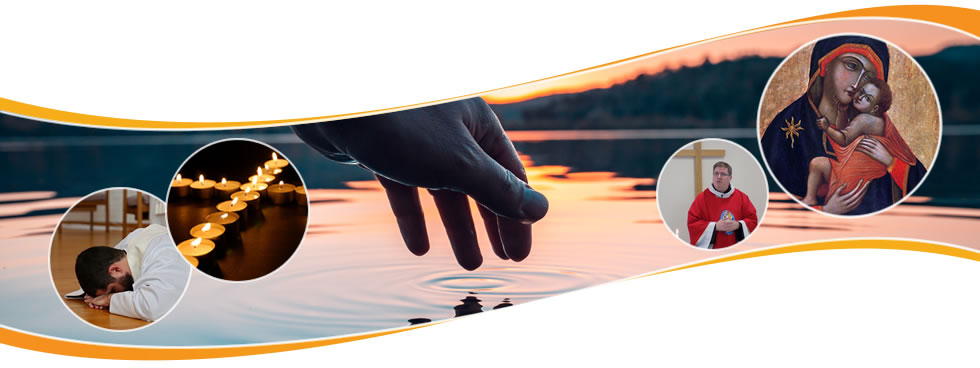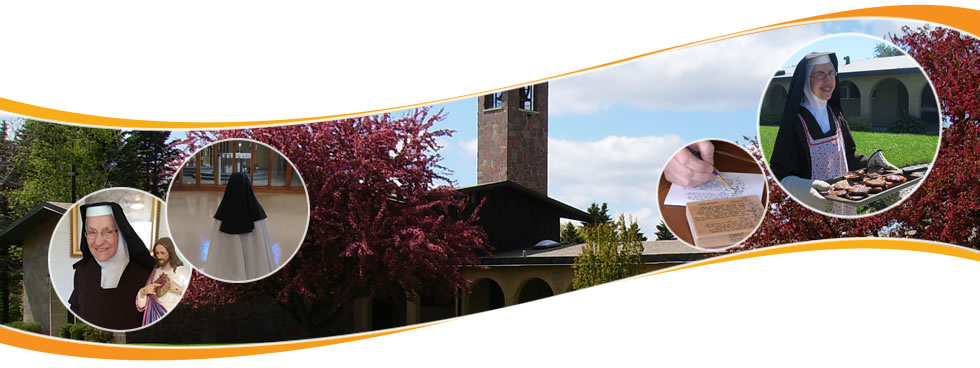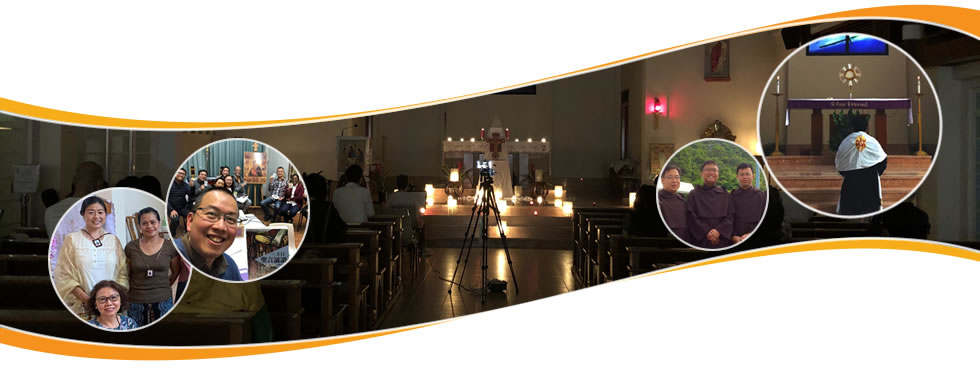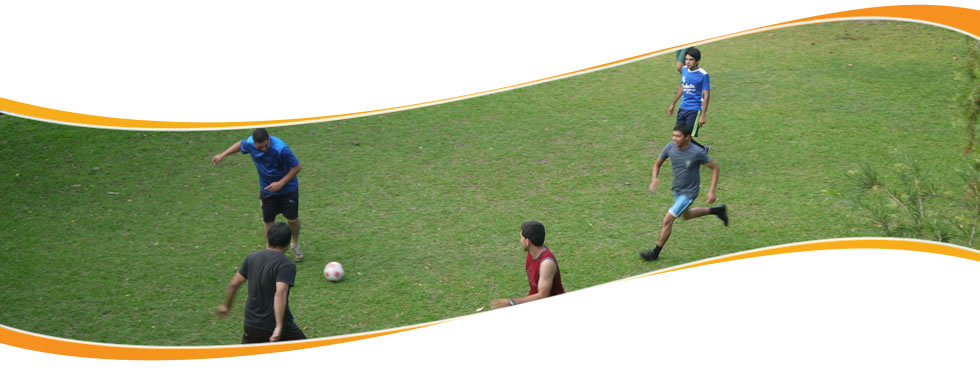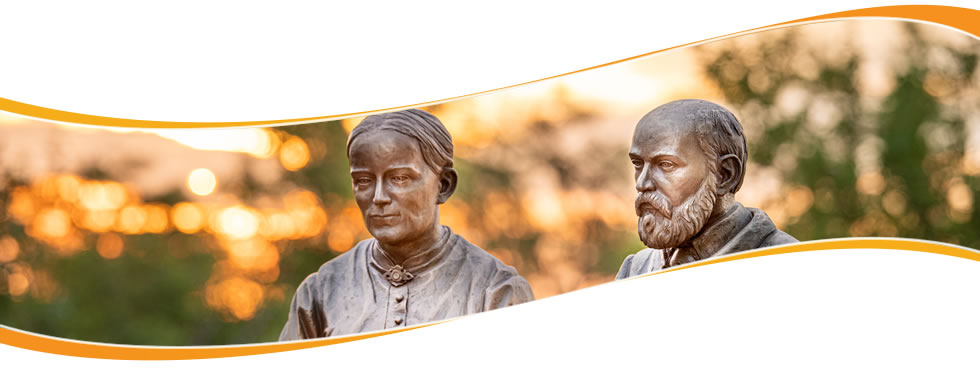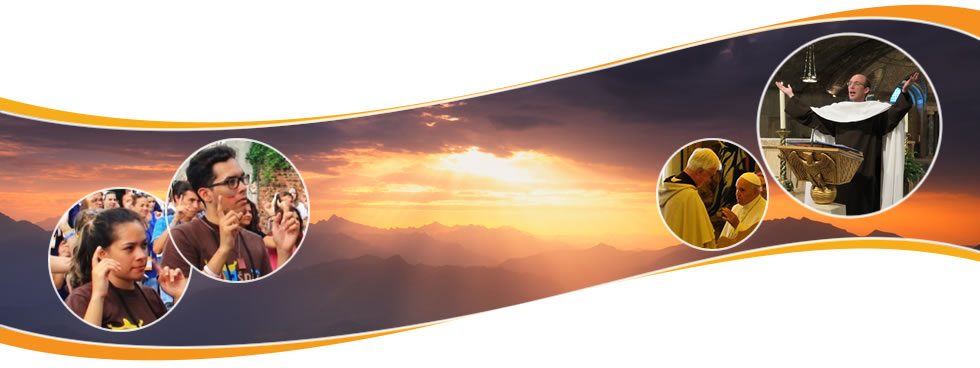Electoral Chapter of the Monastery of Barcelona, Spain
The Elective Chapter of the Carmelite Monastery of Barcelona, Spain, was held 6 April 2019. The following were elected:
- Prioress: Sr. M. Pilar Simón Blasco, O.Carm.
- 1st Councilor: Sr. M. Carmen Izquierdo Marín, O.Carm.
- 2nd Councilor: Sr. M. Jacinta Mutio Muithya, O.Carm.
- Director of Novices: Sr. M. Carmen Izquierdo Marín, O.Carm.
- Treasurer: Sr. M. Jacinta Mutio Muithya, O.Carm.
- Sacristan: Sr. M. Carmen Izquierdo Marín, O.Carm.

Lent Is All About Repentance
Lent is here. Not exactly the favorite time of the liturgical year for most people. Lent calls us to slow down and take stock, to evaluate our progress on our pilgrim journey back to God, our progress in our ascent of Mount Carmel. Lent challenges us to remember that we are dust and unto dust we shall return.
Lent is a period of fasting and penance. This is true. It is good to fast and to do penance. Fasting and penance remind us of our sinfulness, our falling short of the mark, our distance from God. Fasting and penance, or other Lenten observances, remind us of our need for continual repentance, continual conversion.
In the old days before the second Vatican Council, most Carmelites did not look forward to Lent because it was a period of fast and abstinence. Except for Sunday, Carmelites fasted every day during lent and abstained from meat three days a week. But the first and third readings for Ash Wednesday tell us that Lent is not really about what is going on on the “outside,” about external performances, though these can play a role, as mentioned above. Lent is really about what is going on on the “inside,” about inner repentance or conversion.
In the first reading for Ash Wednesday from the prophet Joel, who lived around 375 B.C.E., there is a great locust plague, which Joel interprets as the final attack by God’s enemies against Judah. So he calls for repentance or conversion to turn back the plague. This call for repentance or conversion is the traditional biblical summons to “turn around.” The Hebrew word used here (shub or metanoein in Greek) is the command a General gives to his troops to do an about face, to turn one hundred and eighty degrees, to make a total change in direction.
So repentance or conversion in the scriptures is not just a matter of performing some external practice or religious observance, e.g. fasting or abstaining, saying extra prayers, or even charitable giving, though these are not excluded. Joel tells us that true repentance demands that we rend our hearts, not our garments. Repentance is to “return to me (God) with your whole hearts.” And so repentance or conversion in the biblical sense (shub, metanoein) is a radical turning around, i.e. one which goes right to the root (radix) or heart of a person, the very depths of a person, the depths in which lurks the sarx, usually translated “flesh.” Sarx is the old person of which Paul speaks, the insecure self which is in love with itself, fascinated with itself, tripping over itself, seeking to seize divinity so as to secure its own existence and autonomy. The sarx is the old self which resists abandoning itself and living according to a new self, the Pneuma or Spirit. Repentance involves putting off that old self and putting on the new.
The Gospel reading for Ash Wednesday from Mt.6 shows us that for Jesus also repentance means much more than mere external observances. Jesus tells us to be on guard against performing religious acts for people to see and to applaud. We are not to be like the Pharisees, the hypocrites, who change merely the appearance on their faces. When we give alms, we are not even to let our left hand know what our right hand is doing. We are to keep our deeds of mercy secret, pray in private and comb our hair and wash our face so that no one knows that we are fasting.
Lent is a season of great opportunity. It is a season which reminds us, however, that Lent is not just a period of forty days. Lent is a dimension of our lives which must be present every day. Lent is not so much a temporal season as it is a way of being. Lent is a kenotic or self-emptying way of being to which we are all called every day. One’s whole life, and not just forty days, is to be a life of rending our hearts, of questioning and purifying that “old self,” which can and often does create “on the outside” the subterfuge, the illusion of dying through penitential observances but “within” remains filled with deceit and hypocrisy. Within, despite all the externals and observances, the “old self” remains just the “old self,” the self which runs from and hides from a true turn of heart, a true repentance, a true abandonment to God.
During Lent we must not deceive ourselves, much less attempt to deceive others. What is most important is not what appears, what others can see, the external observances. What is most important is what occurs within the “old self,” in the depths of our being. What is most important is our dying to the “old self” so that we can rise through the power of the Holy Spirit to the “new self,” the new creation, which the Father through the power of the Spirit fully achieved in raising Jesus from the dead.
There is something very Carmelite about the season of Lent, especially when Lent is seen as not just a forty day period but as a way of being, the way of kenosis, of self-emptying. Carmelite spirituality is very much a desert spirituality, a spirituality of continual self-emptying, of being empty before God (vacare Deo) as the Reform of Touraine says, so as to be filled with the Spirit of the Risen Christ.
April, 2019
Fr. Donald Buggert, O.Carm
Professor Emeritus – Washington Theological Union

Management of the cultural heritage of the Order
A topic of which we speak little, but which has an important relevance in the life of our Order, is the management of the cultural assets that we have received from past generations. Our houses, even those of more recent foundation, are rich in memory. Libraries, archives, art objects and even handicrafts for daily use fill our homes. All this memory must be recognised, preserved and made available to many people who, in different ways and for different reasons, are interested in knowing our history and our life.
For this reason, at the end of February and in the first days of March (27 February - 2 March), a training course for archivists, librarians and directors of Carmelite museums was held at the Sant'Alberto International Center in Rome, which saw the participation of about thirty people, friars O.Carm. and OCD, nuns and lay people present in various capacities. The conferences focused on theoretical and practical aspects of the management of archives and libraries. Much appreciated were the presentations of the Carmelite library in Krakow and the museum of the monastery of Granada. Participants were also able to visit the Order's historical archive and the Carmelite General Library, located at CISA, the current archive at the General Curia and the Theological Faculty of the Discalced Carmelites with the rich specialized library in spirituality.
The initiative proposed by the "Institutum Carmelitanum", in continuity with what has already been done in the past by the Association of Carmelite Librarians, has been much appreciated and we hope to continue with other similar events.

Lectio Divina April 2019
Universal – Workers in War Zones
For doctors and their humanitarian collaborators in war zones, who risk their lives to save the lives of others.
| IPAD-IPHONE | KINDLE | |
ENGLISH | |||
ESPAÑOL | |||
ITALIANO |

Shall we cross the desert?
“A voice cries out in the wilderness ‘in the desert prepare
the way of the Lord.’ Make straight in the wasteland a highway
for our God. Every valley shall be filled in, every mountain
and hill made low ” Isaiah 40: 3-4
Their hearts must have sunk. When the Jewish people saw where their homeland, they must have let out a collective gasp. In the quotation above from Isaiah, the Jews are facing the frightening prospect of freedom. Soon, the Persian king Cyrus will come and liberate them from captivity in Babylon. He will free them from their enslavers, so that they can return to Jerusalem. You would think they’d feel overjoyed. You would think they’d feel exhilarated.
Nevertheless, as they awaited their liberation, the Jewish people probably felt a little uneasy. For they had become comfortable living in slavery. The Babylonians were not a particularly cruel people. Moreover, the Jews were getting enough to eat. They were starting to make some money. Sure, being home in Jerusalem sounded wonderful. After all, Jerusalem was where God dwelled.
Unfortunately, in order to get home, the Jews would have to cross the desert. Trudging across miles and miles of waterless wasteland, the sun would scorch them by day. Bitter winds would bite them at night. There would be scorpions hiding under rocks, bandits lurking in the hills.
“In the desert prepare the way of the Lord.”
Yes, the Jewish people wanted to be home with God. They just didn’t want to go through the desert to find him. It’s a dilemma we all experience. Whether we’re aware of it or not, we all want to be home with God. We all want the peace and joy His presence brings. However, we just don’t want to do what it takes to receive that peace and joy.
For like the Jews in Isaiah’s narrative, a vast desert stands between us and God. In this arid wasteland, hostile forces surround us. Our prayer feels as dry as a desert wind. Our workplace seems a hideout of corporate snakes and secretarial scorpions. Feelings of depression, fits of anxiety hover over our heads like marauding birds.
So, at all costs, we try to avoid journeying too far into our desert. As a result, when sadness over a spouse’s infidelity overwhelms us, we distract ourselves with shopping. When nervousness over an upcoming medical exam shakes us, we numb ourselves with food. Seeing an enemy in the next pew, we move away in order to avoid the awkward encounter. No, we don’t journey through the desert of our live. For we have a hard time believing God waits at the other side.
In his great poem The Divine Comedy, Dante describes the soul’s journey from hell to heaven. Interestingly, the journey starts not as an ascent but a descent. Heaven comes only after the poet has first plummeted to the bottom of hell. Similarly, God waits on the other side for those who delve deeply into the painful parts of their lives.
“In the desert prepare the way of the Lord.”
If we want to find resurrection come Easter, we must first walk through our desert this Lent. We must face our fear and talk honestly with an alienated neighbor. We must take time and feel the loneliness over the loss of a parent. We must stop rationalizing and accept the guilt for having betrayed a friend. It’s a scary prospect since it means staying present to our pain. Usually, the discomfort of the desert sends us scampering back to Babylon. We scurry back to Babylon and savor the sweet enslaving distractions of television, work and company.
Don’t seek distractions. This Lent allow time for quiet prayer. Move through the desert of your heart. We can do it. The dryness, the desolation won’t destroy us. After all, the desert didn’t destroy the Israelites. For as Isaiah later promises, the same loving God who awaited the Israelites at the desert’s end would also accompany them in the wasteland. Indeed, Yahweh walked with them. He shielded them from the sun, drove away the jackals.
Likewise, if we journey into our desert, we will find God walking with us. God give us the strength to face our loneliness and the courage to see our sins. As Isaiah declares, Yahweh makes crooked ways strait. He levels the mountains of fear. The valleys of depression He fills so that our journey becomes smooth.
“In the desert prepare the way of the Lord.”
The desert in our hearts is never as bad as we fear. If we make the journey, we will find God walking with us through the beginning, middle and end. Still, it’s easy to talk the talk. This Lent we need to walk the walk.
March 2019
Fr. Timothy Ennis, O.Carm

Second Meeting of Carmelite Laity of the Iberian Region
From the 22nd to the 24th,of March, the Second Meeting of Carmelite Laity of the Iberian Region took place at the "Casa Sao Nuno" in Fátima (Portugal). The meeting was organized by the Laity Commission of the so-called "mixed team" of the Iberian Region, composed of the three provinces of Spain (Aragón-Castilla-Valencia, Bética and Cataluña), the General Commissariat of Portugal, the three Federations of Nuns from the Iberian Peninsula and the two congregations of Carmelite Sisters of apostolic life.
One hundred and sixty people participated in the meeting (among them, the Provincials and the Superior General of the Carmelite Sisters of the Sacred Heart). The central theme was "the shared mission" and the main presentation was given by the Prior General, Fernando Millán Romeral, O.Carm., who insisted that our mission as Carmelites of the 21st century has as its subject the entire Carmelite Family . He also shared a series of keys to understanding to rethink this mission. These keys were analyzed in various groups and round tables.
Several members of the Carmelite Family shared their experience of belonging to Carmel and offered their proposals and initiatives for the future.
During the meeting there was a small pilgrimage to the various emblematic places of Fatima. Also, the musical group "Karmel" of Villarreal (which has recently completed 25 years of existence) offered a beautiful prayer-concert centered on the figure of Mary.
As always, the hospitality of the Commissariat of Portugal was exceptional and the whole meeting took place in an atmosphere of fraternity and joy.

First Chapter of the Provincial Commissariat of St. Joseph (SEL), Vietnam
During the First Chapter of the Provincial Commissariat of St. Joseph (SEL), Vietnam, held on February 28 - March 1 2019 were elected:
- Commissary Provincial: Fr. Joseph Hung Tran, O.Carm.
- First Councilor: Fr. Joseph Thien Nguyen, O.Carm.
- Second Councilor: Fr. Joseph Trung Tran, O.Carm.
They begin their office on March 19, 2019, the Solemnity of St. Joseph, the day the Commissariat comes into existence. God bless them, and may Our Lady of Mt. Carmel and St. Joseph bless this new part of the St. Elias Province.

Lectio Divina March 2019
Pope's Prayer Intentions for March 2019
Evangelization – Christian Communities
That Christian communities, especially those who are persecuted, feel that they are close to Christ and have their rights respected.
| IPAD-IPHONE | KINDLE | |
ENGLISH | |||
ESPAÑOL | |||
ITALIANO |

Lectio Divina: 8th Sunday of Ordinary Time (C)
8th Sunday of Ordinary time (C)
A parable which calls us to conversion
The Tree is recognized by its fruit.
Luke 6:39-45
1. OPENING PRAYER
Oh Holy Spirit, come to my aid in my weakness and teach me to pray. Spirit of the Father, without You I do not know what to ask for nor how to ask for it. But You Yourself come to my assistance and pray to the Father on my behalf, with sighs which no words can express. Oh Spirit of God, you know what is in my heart: pray in me as the Father desires. Oh Holy Spirit, come to the aid of my weakness and teach me how to pray. Amen.
(Cf Rm 8:26-27)
2. LECTIO: THE READING
a) A key to the Reading
Today’s Gospel presents us with passages from the teachings which Jesus pronounced on the plain, after having spent the night in prayer (Lk 6:12), and after having called the Twelve to be His apostles (Lk 6:13-14). Many of these teachings, woven together in this discourse, were pronounced by Jesus on other occasions. But, imitating Matthew, Luke places them all together in this Sermon on the Plain.
b) A division of the Text to facilitate our Reading
Lk 6:39: The parable of the blind leading the blind.
Lk 6:40: The disciple and the teacher.
Lk 6:41-42: The splinter in the eye of your brother.
Lk 6:43-45: The parable of the tree that produces good fruit.
c) The Text: Luke, 6:39-45
Jesus told his disciples a parable, "Can a blind person guide a blind person? Will not both fall into a pit? No disciple is superior to the teacher; but when fully trained, every disciple will be like his teacher. Why do you notice the splinter in your brother's eye, but do not perceive the wooden beam in your own? How can you say to your brother, 'Brother, let me remove that splinter in your eye,' when you do not even notice the wooden beam in your own eye? You hypocrite! Remove the wooden beam from your eye first; then you will see clearly to remove the splinter in your brother's eye. "A good tree does not bear rotten fruit, nor does a rotten tree bear good fruit. For every tree is known by its own fruit. For people do not pick figs from thornbushes, nor do they gather grapes from brambles. A good person out of the store of goodness in his heart produces good, but an evil person out of a store of evil produces evil; for from the fullness of the heart the mouth speaks."
3. A MOMENT OF SILENT PRAYER
So that the Word of God can penetrate our hearts and enlighten our lives.
4. SOME QUESTIONS
To assist our meditation and prayer.
- Have you ever put yourself in the situation of a blind person? What did you experience?
- The splinter and log in one’s eye. How do I relate to others? At home, in my family, at work, with colleagues, in community, with brothers and sisters?
- There is no shortage of “spin” and interpretation of the Gospel these days. How can we use this passage as guidance in discerning the truth?
- The Teacher and the disciple. What kind of a disciple of Jesus am I?
- What is the spiritual state of my heart?
5. FOR THOSE WHO WISH TO GO DEEPER INTO THE TEXT
Lk 6:39: The parable of the blind leading the blind.
Jesus tells a parable to the disciples: "Can a blind man lead another blind man? Will not both fall into a hole? " A parable of one line, very similar to the warnings that, in the Gospel of Matthew, are addressed to the Pharisees: "Woe to you, blind guides!" (Mt 23:16,17,19,24,26). Here, in the context of the Gospel of Luke, this parable is addressed to the animators of the communities who consider themselves to be masters of the truth, superior to others. This is why they are blind guides.
Lk 6:40: The Disciple and the Teacher
"The disciple is not superior to the teacher; but each well trained student will be like his teacher." Jesus is the Master. Not the professor. The professor in the classroom teaches different subjects, but does not live with the students. The Teacher does not give lessons, He lives with His pupils. His subject matter is Himself, His testimony of life, His way of living the things He teaches. Living with the Teacher entails three aspects: (a) The Teacher is the model or example to be imitated (cf. Jn 13:13-15); (b) The disciple not only contemplates and imitates the Teacher, but He also commits Himself to the destiny of the Master, with His temptations (Lk 22:28), with His persecution (Mt 10:24-25), and with His death (Jn. 11:16); (c) He not only imitates the model and not only undertakes the commitment, but He comes to identify Himself with Him: "I no longer live, but Christ lives in Me" (Gal 2:20). This third aspect is the mystical dimension of the following of Jesus, fruit of the action of the Spirit.
Lk 6:41: The splinter in the eye of your brother.
“Why do you observe the splinter in your brother's eye and never notice the great log in your own? How can you say to your brother, "Brother, let me take out that splinter in your eye," when you cannot see the great log in your own? Hypocrite! Take the log out of your own eye first, and then you will see clearly enough to take out the splinter in your brother's eye.”
In the Sermon on the Mount, Matthew deals with the same theme and explains the parable of the splinter in the eye a little better. Jesus asks for a creative attitude that enables us to meet the other without judging him, without preconceptions and rationalizations, accepting him as a brother (Mt 7:1-5). This total openness towards the other, considered as brother or sister, will only arise in us when we are able to relate to God with the total trust of children (Mt 7:7-11).
Lk 6:43-45: The parable of the tree that produces good fruit.
“'There is no sound tree that produces rotten fruit, nor again a rotten tree that produces sound fruit. Every tree can be told by its own fruit: people do not pick figs from thorns, nor gather grapes from brambles.” The letter of the apostle James serves as a commentary to these words of Jesus: “Does any water supply give a flow of fresh water and salt water out of the same pipe? Can a fig tree yield olives, my brothers, or a vine yield figs? No more can sea water yield fresh water” (Jm 3:11-12). A well-formed person in the tradition of community living develops a good character within himself that leads him to practice goodness. "He draws out good from the good treasure of his heart." But the person who does not pay attention to his formation will have difficulty producing good things. On the contrary, "evil draws evil out of its evil treasure, because the mouth speaks from the fullness of the heart". Regarding the "good treasure of the heart" it is worth remembering what the book of Sirach says about the heart, source of good advice: "Attend the counsel of your heart, because no one is more faithful to you. In fact, the conscience of a man sometimes warns him better than seven sentinels perched on a watchtower to spy. For all these things invoke the Most High, so that He may lead your way according to truth" (Sir 37:13-15).
6. ORATIO
Psalm 16 (15)
Protect me, O God, in You is my refuge.
To Yahweh I say, “You are my Lord,
my happiness is in none of the sacred spirits of the earth.”
They only take advantage of all who love them.
People flock to their teeming idols.
Never shall I pour libations to them!
Never take their names on my lips.
My birthright, my cup is Yahweh;
You, You alone, hold my lot secure.
The measuring-line marks out for me a delightful place,
my birthright is all I could wish.
I bless Yahweh who is my counselor,
even at night my heart instructs me.
I keep Yahweh before me always,
for with Him at my right hand, nothing can shake me
So my heart rejoices, my soul delights,
my body too will rest secure,
for You will not abandon me to Sheol,
You cannot allow Your faithful servant to see the abyss.
You will teach me the path of life,
unbounded joy in Your presence,
at Your right hand everlasting pleasures.
7. FINAL PRAYER
God of love, You are a God of peace and unity,
You are the only one who can dispense harmony.
The new commandment You gave us
through Your Only Son
to love one another as You loved us,
wounds our heart and overwhelms us.
In fact, we know the harsh resistance of our pride
and of our infidelities.
But You gave us Your very beloved Son
for our life and our salvation.
We pray, Father,
give Your servants a humble spirit,
far from every bad intention,
a pure conscience and sincere thoughts and feelings.
Give us a heart capable of loving all our brethren
to exchange a holy embrace of love and peace.
Following the example of Your holy apostles and disciples,
let us sincerely encounter each other in Your holy Spirit
by the grace of Jesus Christ,
the Immaculate Lamb,
who redeemed us with His blood
and Who made us a holy people
to manifest the glory of Your name.
Blessing You for ever and ever. Amen.
(From the Coptic Liturgy of St. Cyril)
Electoral Chapter of the Monastery of Sutri and the Monastery of Vetralla, Italy
Electoral Chapter of the Monastery of Sutri, Italy
The Elective Chapter of the Carmelite Monastery of Sutri, Italy, was held 11 February 2019. The following were elected:
- Prioress: Sr. M. Martina Simeone, O.Carm.
- 1st Councilor: Sr. M. Daniela Solustri, O.Carm.
- 2nd Councilor: Sr. Teresa Lupo, O.Carm.
- Director of Novices: Sr. M. Daniela Solustri, O.Carm.
- Treasurer: Sr. Teresa Lupo, O.Carm.
- Sacristan: Sr. M. Alessandra Foti, O.Carm.
Electoral Chapter of the Monastery of Vetralla, Italy
The Elective Chapter of the Carmelite Monastery of Vetralla, Italy, was held 11 February 2019. The following were elected:
- Prioress: Sr. M. Benedetta Succu, O.Carm.
- 1st Councilor: Sr. Marianna Caprio, O.Carm.
- 2nd Councilor: Sr. M. Giuseppina Sotgiu, O.Carm.
- 3rd Councilor: Sr. M. Teresa Nguyen, O.Carm.
- 4th Couniclor: Sr. M. Fiamma Piola, O.Carm.
- Director of Novices: Sr. Marianna Caprio, O.Carm.
- Treasurer: Sr. M. Teresa Nguyen, O.Carm.
- Sacristan: Sr. M. Fiamma Piola, O.Carm.





